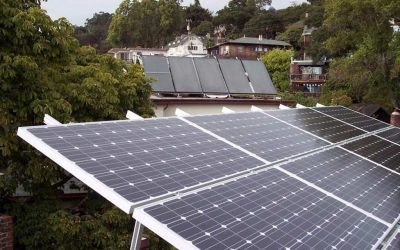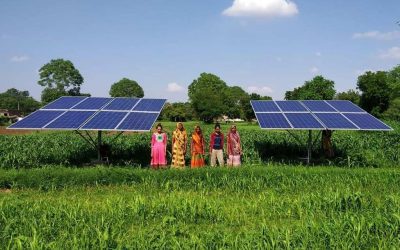A solar refrigerator is the same as your traditional refrigerator in every way except for one major exception.
It does not run on electricity from the grid. Instead, it runs on the power from the sun.
While solar refrigerators are not a new concept, DDSolar is trying to bring this novel innovation to the ones affected the most by power cuts and poor energy infrastructure.
How do our solar refrigerators work?
Our solar refrigerators consume a quarter of the power that conventional refrigerators of this capacity do. While the solar-powered 100 L DC refrigerator consumes only 0.329 kWh (units) per 24 hours, their conventional AC electricity-powered counterparts take up 1.3 units/24 hours. The electricity bill reduces drastically as there is no AC power consumption because the refrigerator is completely dependent on solar power now.
Regardless of power cuts or poor energy infrastructure, the solar refrigerators run unaffected and prevent spoilage of products that need refrigeration.
Everything from dairy to fish can be stored in DDSolar refrigerators. If you can store it in a regular refrigerator, you can store it in a solar refrigerator.
What does this mean for our beneficiaries?
In the dairy business, farmers are keeping a greater stock of milk and other dairy products because now the risk of spoilage has been reduced. Given the confidence of little to no spoilage, retailers engaged in dairy products have added more products like paneer, buttermilk, mawa (khoya).
In the fisheries segment, we focus on entrepreneurs who buy fish from catchers daily, keep them on ice slabs at their home or small shop and sell it on the same day. However, now they buy the fish in bulk when the prices are low and store it in the solar refrigerator so they sell it in the market where they can make more profits. They don’t use ice slabs anymore. So, this recurring cost no longer exists.
What else do they offer?
Our solar DC refrigerator comes with a digital display, environment-friendly technology (no chlorofluorocarbon emissions) and is tested by CLASP (Collaborative Labeling and Appliance Standards Program, a non-profit that works to implement energy efficiency standards and labels for appliances, lighting, and equipment) for steady-state operation power consumption at 16C, 32C, and 43C, load processing efficiency and freezing capacity.
Solar refrigerators have countless environmental and socio-economic benefits which helps our beneficiaries become financially independent and make their lives brighter.




